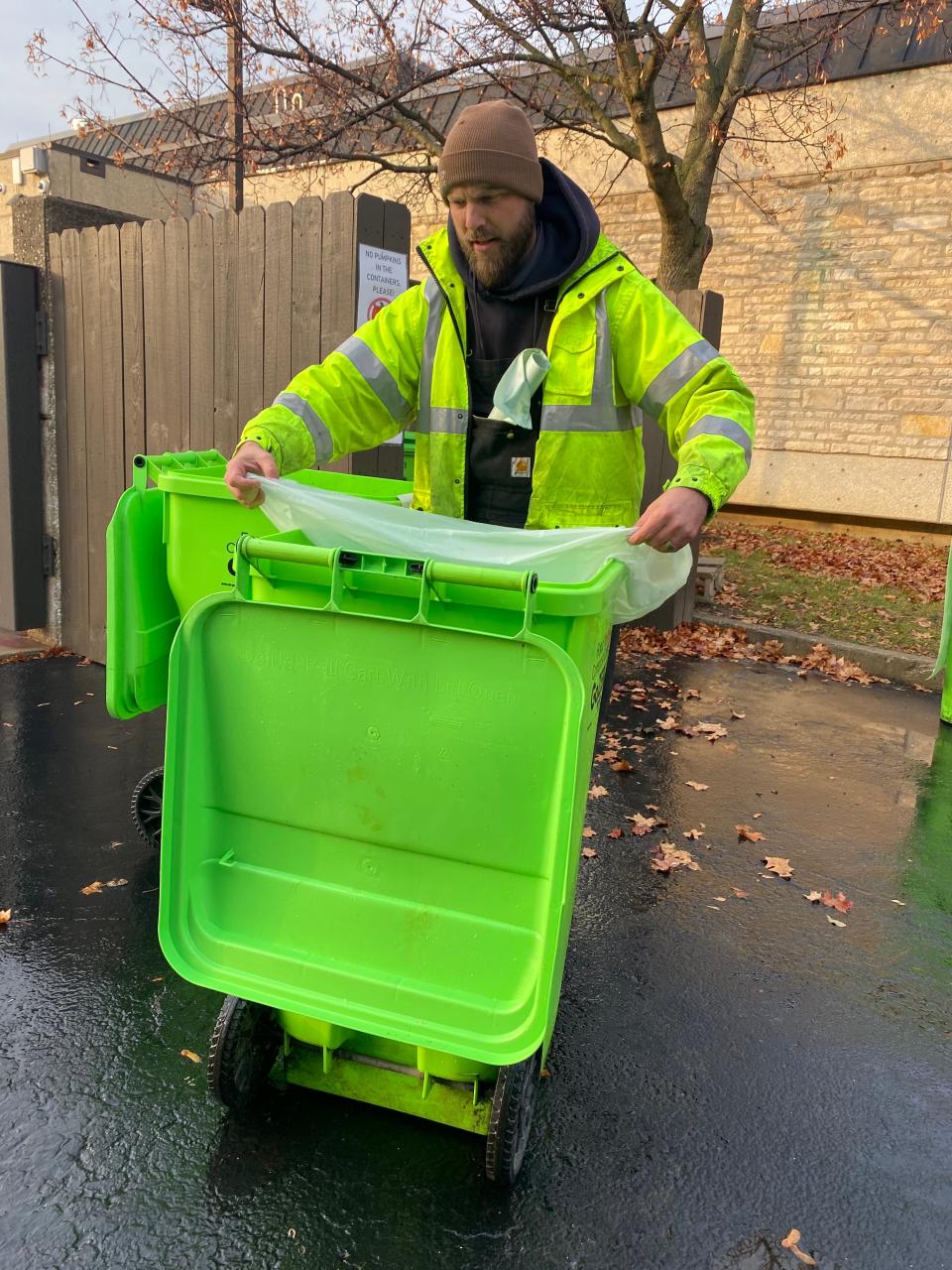Upper Arlington waste programs aimed at reducing trash sent to landfill
In an ongoing effort to reduce the amount of trash sent to the Franklin County Sanitary Landfill, the city of Upper Arlington offers several recycling programs.
While they may add wonder to the season, holiday lights can be a menace to the Solid Waste Authority of Central Ohio's recycling facility.
"String lights should never be put in with household recycling – in the curbside recycling cart – because the strings tangle in the sorting equipment at the recycling facility, causing processing downtime and damage to equipment, which can lead to increased recycling costs for all of us," said Hanna Greer-Brown, SWACO’s communications manager.

In Upper Arlington, there is another option.
The city offers a recycling program that allows strings of lights to be disposed of in bins outside the Upper Arlington Municipal Services Center, 3600 Tremont Road. The discarded lights are taken to Mark Grey Enterprises, a metal-recycling company.
"They remove and recycle all the metal from the lights," said Brian Hedge, Upper Arlington’s community affairs manager. "This keeps the lights out of the landfill but also brings awareness that people should not place them in their normal curbside recycling."
Hedge said Mark Grey Enterprises takes the discarded holiday lights at no cost to the city.
The city offers a food-waste composting program year-round, but reminds residents to dump leftover food in lime-green containers at three locations: the MSC; the Amelita Mirolo Barn, 4395 Carriage Hill Lane; and Fancyburg Park, 3375 Kioka Ave.
The food scraps are taken to area composting facilities, Hedge said.
"While food is biodegradable, when it goes to the landfill it breaks down differently than it would break down naturally," he said. "By collecting the food waste separately, it can be made into nutrient-rich compost which goes back into the earth."
The city has a few rules for the food-waste composting program: Food scraps should be placed in lidded containers before disposed of and plastic bags are prohibited, unless they are BPI Combustible-certified compostable liners.
Residents also are asked not to overfill containers and to close the lids on the bins when finished.
According to Hedge, the city collected 27,500 pounds of food waste in 2019 and 72,000 pounds in 2020.
As of Nov. 30, the city had collected 131,000 pounds of food waste so far this year, Hedge said.
Upper Arlington pays a monthly service fee of $1,700 to dispose of the food waste, Hedge said, but he said SWACO awarded Upper Arlington a $3,000 grant in 2020 to expand its food-waste collection sites.
Greer-Brown said more than 1 million pounds of food waste arrives at the county landfill every day, making it the largest waste-stream material.
"It also presents one of the best opportunities to increase diversion and reduce our reliance on the landfill, which has many environmental and economic benefits," she said. "When food is simply tossed out, all of the resources that were used to produce it - land, water, money - are lost.
"In fact, the average family of four in Franklin County spends $1,200 on food every year that is never eaten. That’s equivalent to a mortgage payment or several car payments for most families."
Greer-Brown said Upper Arlington "has been a great partner" in reducing central Ohio’s effort to cut food waste in half by 2030.
"We’ve been pleased to offer technical and financial support for their food-waste drop-off program and expansion and applaud the leadership they’ve shown on this important issue."
In addition to the holiday lights and food-waste programs, the city allows for e-waste disposal from 7 a.m. to 4 p.m. Monday through Friday at its Public Service Center, 4100 Roberts Road.
Hedge said the program has resulted in the disposal of 8,600 pounds of discarded electronic devices, such as computers and small appliances, this year.
"Properly recycled e-waste prevents harmful chemicals and materials that take many, many years to break down from entering the landfill," he said.
nellis@thisweeknews.com
@ThisWeekNate
This article originally appeared on ThisWeek: Upper Arlington waste programs aimed at reducing trash sent to landfill

